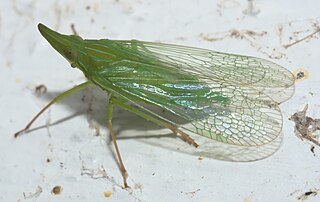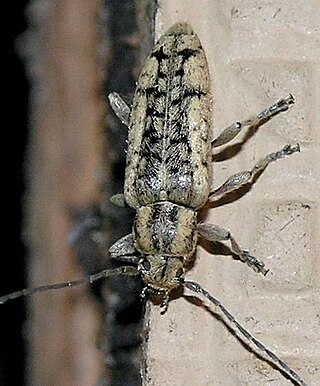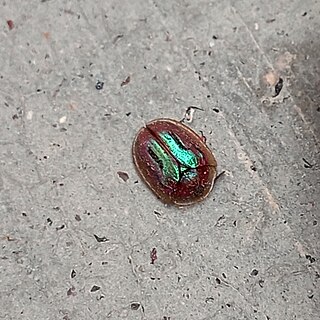
Platanus is a genus consisting of a small number of tree species native to the Northern Hemisphere. They are the sole living members of the family Platanaceae.

Diosgenin, a phytosteroid sapogenin, is the product of hydrolysis by acids, strong bases, or enzymes of saponins, extracted from the tubers of Dioscorea wild yam species, such as the Kokoro. It is also present in smaller amounts in a number of other species. The sugar-free (aglycone) product of such hydrolysis, diosgenin is used for the commercial synthesis of cortisone, pregnenolone, progesterone, and other steroid products.

The Mexican agouti,, also known as the Mexican black agouti, is a species of rodent in the genus Dasyprocta. This species was first discovered in 1860 in Veracruz, Mexico and described by Henri Louis Frédéric de Saussure.

The Mexican long-tongued bat is a species of bat in the family Phyllostomidae. It is the only species within the genus Choeronycteris. It is found in El Salvador, Guatemala, Honduras, Mexico, and the United States.

Plataea is a genus of geometrid moths in the family Geometridae. There are about 11 described species in Plataea.

Sabal mexicana is a species of palm tree that is native to far southern North America. Common names include Rio Grande palmetto, Mexican palmetto, Texas palmetto, Texas sabal palm, palmetto cabbage and palma de mícharos. The specific epithet, "mexicana", is Latin for "of Mexico."

Muhlenbergia mexicana or Mexican muhly is a species of grass. It is native to North America, including most of the United States and southern Canada.
Dioscorea composita, or barbasco, is a species of yam in the family Dioscoreaceae. It is native to Mexico. It is notable for its role in the production of diosgenin, which is a precursor for the synthesis of hormones such as progesterone. Russell Marker developed the extraction and manufacture of hormones from D. mexicana at Syntex, starting the trade of D. composita in Mexico. Marker also discovered that the composita variety had a much higher content of diosgenin than the mexicana variety, and therefore it came to replace the latter in the production of synthetic hormones.

Therevinae is a subfamily of stiletto flies in the family Therevidae. More than 20 genera and 470 described species are placed in the Therevinae.

Helochara is a genus of leafhoppers in the family Cicadellidae. There are about six described species in Helochara.

Rhynchomitra is a genus of dictyopharid planthoppers in the family Dictyopharidae. There are about five described species in Rhynchomitra.
Chromolepida bella is a species of stiletto fly in the family Therevidae.
Chromolepida is a genus of stiletto flies in the family Therevidae. There are about five described species in Chromolepida.

Hydraena is a genus of minute moss beetles in the family Hydraenidae. There are more than 990 described species in Hydraena.

Atimia is a genus of long-horned beetles in the family Cerambycidae. There are about 13 described species in Atimia.

Jonthonota mexicana is a species of tortoise beetle in the family Chrysomelidae. It is found in Central America and North America.
Desmopachria mexicana is a species of predaceous diving beetle in the family Dytiscidae. It is found in North America and the Neotropics.
Calotarsa is a genus of flat-footed flies. There are about six described species in Calotarsa.
Ollanta is a genus of cicadas in the family Cicadidae. There are at least four described species in Ollanta.
Ptiloglossa mexicana is a species of nocturnal bee in the family Colletidae. It is found from Central America north to Texas.












